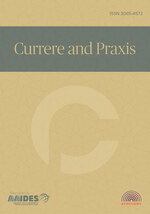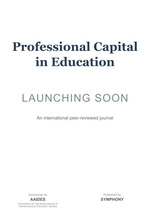The Top 10 Trends in P-12 and Higher Education, 2024
DOI:
https://doi.org/10.70116/2980274126Abstract
In the editorial for this edition of Culture, Education, and Future, the editor-in-chief, the editors, and the editorial board present our choices for the top 10 trends in education for 2024. These trends are side effects of technological advances, political changes, and shifting cultural preferences; we project that they will affect educational systems in the foreseeable future. We have generated two Top-10 lists, one for P-12 education and one for higher education.
We generate these lists to accomplish two goals. First, the intent is to focus readers’ attention on emerging futures germane to this journal, events that emerge from or that generate cultural changes that affect education—culture, education, and the future. Second, the lists hopefully will stimulate researchers to write about subjects of interest to our readership, which will be appropriate submissions for CEF. If the list catches on, we may also make the top 10 trends an annual editorial.
The criteria for inclusion in our Top 10 lists is related to a trend’s importance as reflected in the frequency of headlines, editorials, and concerns found in educational news outlooks, such as Education Week and Chronicles of Higher Education (or equivalent outlets in various cultures). We additionally polled our Editors and the Editorial Board, who come from all over the globe, about trends in their cultures.
Several trends identified in the two lists are specific to given cultures, but most have more global influence. We invite scholars to write from both perspectives. The two sources list occasionally overlapped as they did regarding the impact of artificial intelligence, for example. In other cases, a trend was identified by different respondents for opposite reasons, such as when diversity policies were mentioned as opportunities by some and a problem by others. Finally, we saw regional differences that reflected efforts to rectify prior conditions such as colonialism or tradition. In each case, I have attempted to identify trends that are characteristic of large numbers of, if not cultures and nations.
Downloads
References
Campbell, L. O., Jones J., T., Sutter, C. C., & Haugen, J. S. (2023). The development of the Academic Incivility Scale for higher education. Learning Environments Research, 1-17. DOI: https://doi.org/10.1007/s10984-023-09478-6
Mannix, E., & Neale, M. A. (2005). What differences make a difference: The promise and reality of diverse teams in organizations. Psychological Science in the Public Interest, 6(2), 31-55. DOI: https://doi.org/10.1111/j.1529-1006.2005.00022.x
Eghbariah, R. (2023, November 21). The Harvard Law Review refused to run this piece about genocide in Gaza. The Nation. Retrieved 18 June, 2024 from https://www.thenation.com/article/archive/harvard-law-review-gaza-israel-genocide.
McMurtrie, B. (2024, May 9). Teaching: How to teach about contentious topics like Israel and Hamas. The Chronicles of Higher Education. Retrieved 18 June, 2024 from https://www.chronicle.com/newsletter/teaching/2024-05-09
Hicks, M. (2024, June 17). A holocaust scholar called Israel’s actions in Gaza ‘Genocide.’ It cost him a job offer. The Chronicles of Higher Education. Retrieved 18 June, 2024 from https://www.chronicle.com/article/a-holocaust-scholar-called-israels-actions-in-palestine-genocide-it-cost-him-a-job-offer
The Dallas Morning News (2024, June 28). Retrieved 18 June, 2024 from https://www.dallasnews.com/news/education/2024/06/17/131-college-scholarships-put-on-hold-or-modified-due-to-texas-dei-ban-documents-show/
Downloads
Published
How to Cite
Issue
Section
License
Copyright (c) 2024 Symphony

This work is licensed under a Creative Commons Attribution 4.0 International License.














